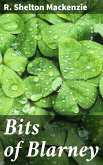In "Uppingham by the Sea," John Huntley Skrine masterfully intertwines the picturesque charm of coastal England with the profound themes of longing and existential reflection. Set against a backdrop of shifting tides and serene landscapes, Skrine employs a lyrical and evocative prose style that immerses readers in a vivid tableau of life'Äôs complexities while illustrating the nuances of human relationships. This novel not only encapsulates the essence of early 20th-century British literature but also serves as a poignant exploration of identity and belonging, resonating with the works of contemporary authors like E.M. Forster and Virginia Woolf. John Huntley Skrine, an esteemed writer and later an influential figure in the literary realm, was profoundly influenced by his scholarly pursuits and his deep appreciation for nature. Born into a family of educators, Skrine's background perhaps instilled in him a lifelong dedication to the reflective and meditative aspects of life that permeate this novel. His exposure to the rich literary traditions of his time fostered a unique perspective on the interplay between setting and the human condition, which is meticulously realized in this work. "Uppingham by the Sea" is a must-read for those who appreciate contemplative literature that encapsulates the beauty and melancholy of the human experience. Readers seeking a deeply introspective journey that melds rich imagery with philosophical inquiry will find themselves enchanted by Skrine's adept storytelling and keen insights.
Dieser Download kann aus rechtlichen Gründen nur mit Rechnungsadresse in A, B, BG, CY, CZ, D, DK, EW, E, FIN, F, GR, H, IRL, I, LT, L, LR, M, NL, PL, P, R, S, SLO, SK ausgeliefert werden.









